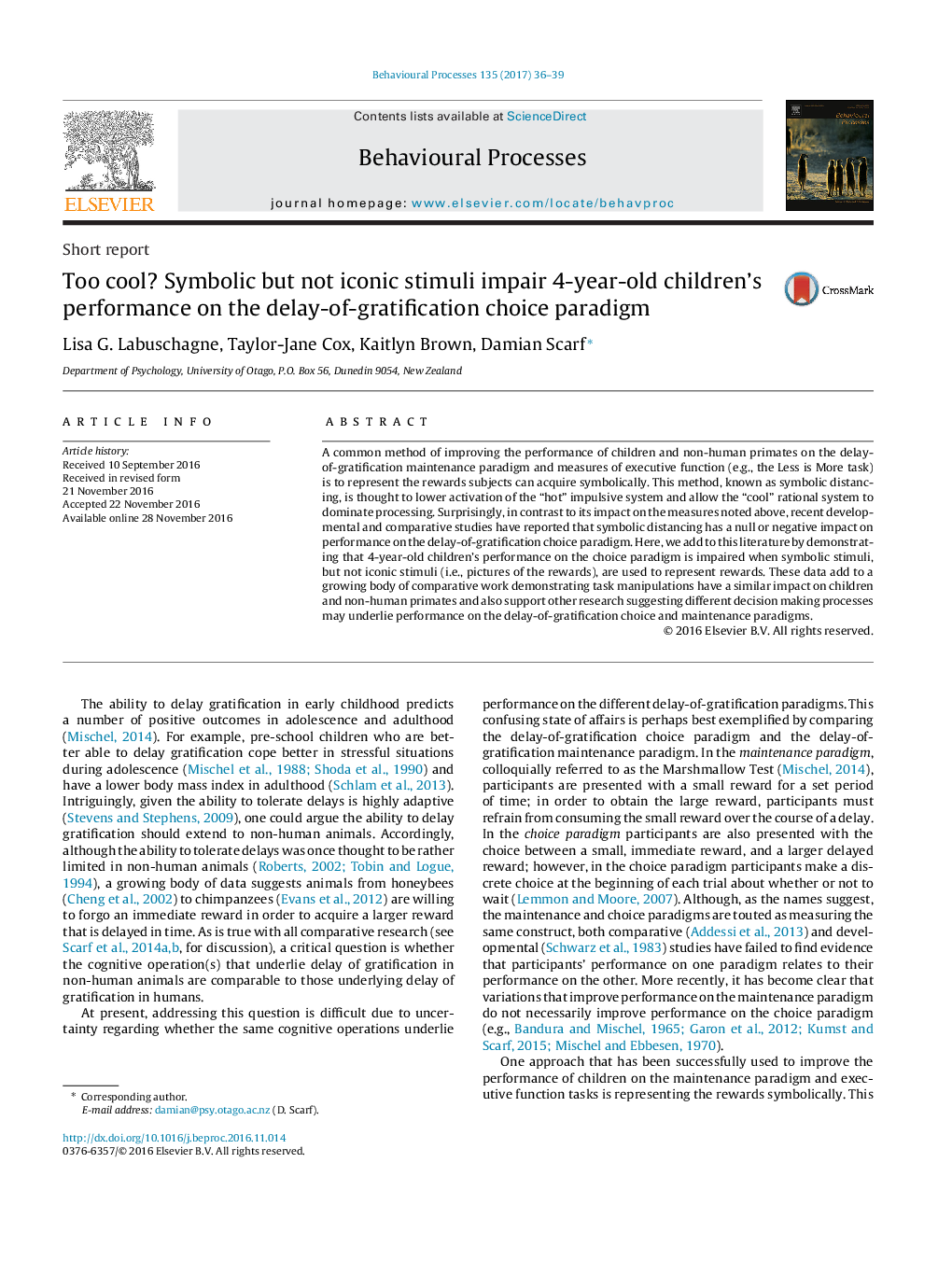| کد مقاله | کد نشریه | سال انتشار | مقاله انگلیسی | نسخه تمام متن |
|---|---|---|---|---|
| 5539696 | 1553145 | 2017 | 4 صفحه PDF | دانلود رایگان |

- Symbolic distancing impairs performance on the delay-of-gratification choice paradigm.
- Performance with iconic representations overlaps with performance with real rewards.
- Future studies may look to see if experience with symbolic stimuli improves performance.
A common method of improving the performance of children and non-human primates on the delay-of-gratification maintenance paradigm and measures of executive function (e.g., the Less is More task) is to represent the rewards subjects can acquire symbolically. This method, known as symbolic distancing, is thought to lower activation of the “hot” impulsive system and allow the “cool” rational system to dominate processing. Surprisingly, in contrast to its impact on the measures noted above, recent developmental and comparative studies have reported that symbolic distancing has a null or negative impact on performance on the delay-of-gratification choice paradigm. Here, we add to this literature by demonstrating that 4-year-old children's performance on the choice paradigm is impaired when symbolic stimuli, but not iconic stimuli (i.e., pictures of the rewards), are used to represent rewards. These data add to a growing body of comparative work demonstrating task manipulations have a similar impact on children and non-human primates and also support other research suggesting different decision making processes may underlie performance on the delay-of-gratification choice and maintenance paradigms.
Journal: Behavioural Processes - Volume 135, February 2017, Pages 36-39